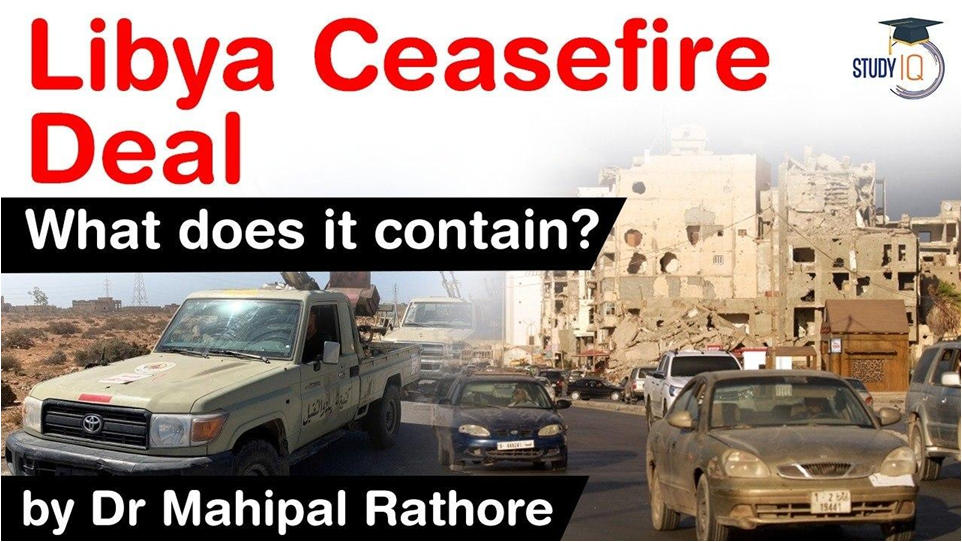Table of Contents

- On 23rd October 2020, Libya’s warring sides signed an agreement for “a permanent ceasefire in all areas of Libya”, the UN Libya mission said, raising hopes the long-running conflict may finally reach a lasting peace.
Muammar Gaddafi
- Army Officer who led a coup against the King of Libya
- Ruled over Libya from 1969 – 2011
- 2011- Arab Spring
- Civil war – Gaddafi killed
A nation fragmented
- In the wake of Gaddafi’s ouster, dozens of militias led by multiple warlords scrambled to occupy the power vacuum.
- As a result, Libya turned into a war zone with different militant leaders claiming control of the North African nation.
- Many Foreign fighters

- Libya is an oil-rich country. World’s 9th largest proven reserve of Oil.
- Libya produced almost 2 million barrels of oil per day in 2019
- Major factions are fighting for –
- Control of the oil infrastructure
- Governance
- National finances
- Control of military
The Major FACTIONS
- GNA – Government of National Accord (GNA)
- 2015 – UN brokered Libyan Political Agreement gave power to GNA
- HQ – Tripoli
- Led by Fayez al-Sarraj.
- Support from – UN, Qatar , Italy and Turkey
HoR – LNA
- House of Representatives
- HQ – Tobruk
- The HoR is supported by the Libyan National Army (LNA), led by Khalifa Haftar
- Support from – UAE, Egypt, Saudi Arabia, Russia, France and Jordan.

- The foreign parties have flooded Libya with weapons and drones, ignoring a UN arms embargo.
5+5 Libyan Joint Military Commission (JMC)
- UN has tried for a peace deal since 2015
- Previous truce deals over the years have failed to end the fighting.
- The fighting parties have failed to honour the ceasefires agreed upon in Geneva.
- The Islamic State and foreign fighters from Syria etc have further complicated the fight.
Human cost of war
- Libya population 2011 – 62 lakh
- 300,000 refugees and asylum seekers
- 10,000 missing persons
Peace Deal October 2020
- All foreign mercenaries and fighters to exit Libya within 3 months
- Unified Army command – Joint armed forces
- All land and air routes that connect the regions and cities of Libya will be thrown open.
- Oil production – petroleum facilities guards from the east and west to work directly with a representative appointed by the National Oil Corporation to present a recommendation for the restructuring of the Petroleum Facilities Guards which will ensure the increase and continuation of the flow of oil.
Latest Burning Issues | Free PDF


























 WhatsApp
WhatsApp